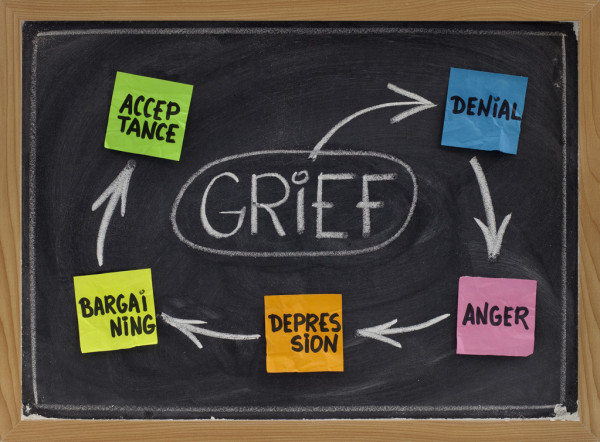What is Grief Counseling?

What is Grief?
Grief is a natural emotional reaction to significant losses in life. Grief can cause people to feel overwhelmed by difficult emotions like sadness and longing. Although uncomfortable, grief is healthy and does not indicate that someone has a mental health disorder like depression. Some events that can trigger grief include losing a(n):
- Loved one
- Ability
- Job
- Relationship
- Home
There’s no timetable for grief. How long someone grieves may depend on the nature of the loss, the person’s outlook on life, and available coping mechanisms. Sometimes, healthy grief can become what’s known as “complicated grief.”
What is Complicated Grief?
When a person is unable to move through the grieving process, it’s called “complicated grief.” People with this type of grief may need additional support to help them lead healthy lives after a loss. Signs of this type of grief include:
- Showing signs of clinical depression
- Blaming oneself for the loss
- Having trouble getting through daily life
- Thinking about harming or killing oneself
If you have thoughts of hurting yourself, seek immediate mental health care. You can go to your nearest emergency room or call the National Suicide Prevention Lifeline at 1-800-273-8255.
How to Cope With Grief
No matter how natural and healthy grief is, it can feel overwhelming in the moment. Furthermore, some people are afraid to move through grief because it feels disrespectful to what or who they lost. It’s important to understand what the point of grief counseling is and what type of help is available.
Grief Counseling Goals
Coping with grief does not mean “getting over” anything that you have lost, nor does it mean you stop remembering your loss. Instead, grief counseling is about learning to live alongside the loss in new and healthy ways.
For example, the death of a loved one may affect a person forever. Grief counseling does not aim to help someone forget the person they lost. Instead, the grieving person should strive to get to the point of accepting the loss that occurred and the way that changes their life. Grief counseling can help people get to that point in a healthy way.
Therapy for Grief
There’s no shame in reaching out to a licensed mental health care provider for help with the grieving process. In fact, asking for the help that you need is a sign of strength. Types of therapy that can help include:
- Individual grief counseling: One-on-one support from a licensed therapist.
- Grief support groups: Support from a licensed therapist and a group of people who are also grieving.
- Teletherapy for grief counseling: Secure, online therapy that you can access from the comfort of home.
If you’re looking for help as you grieve, contact us today. Our compassionate therapists are here to help.
